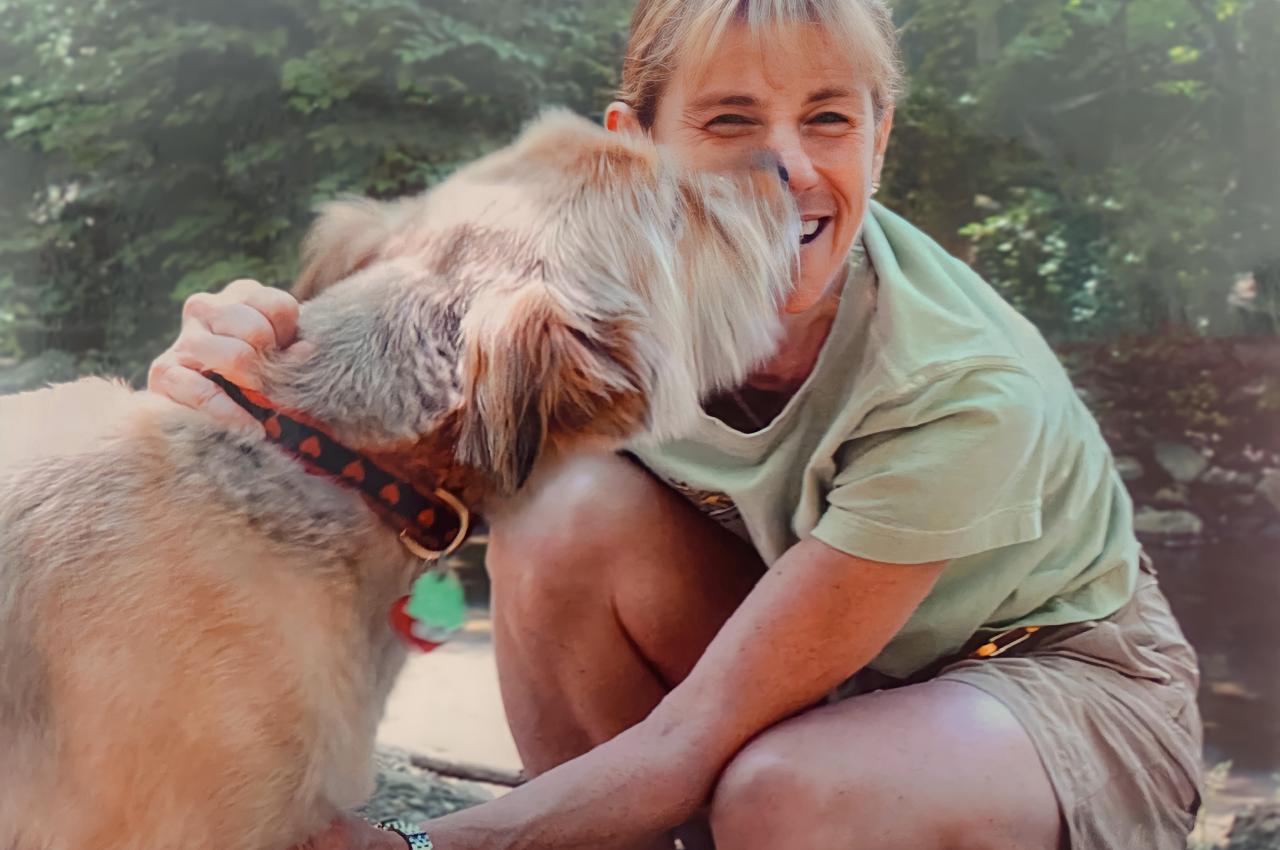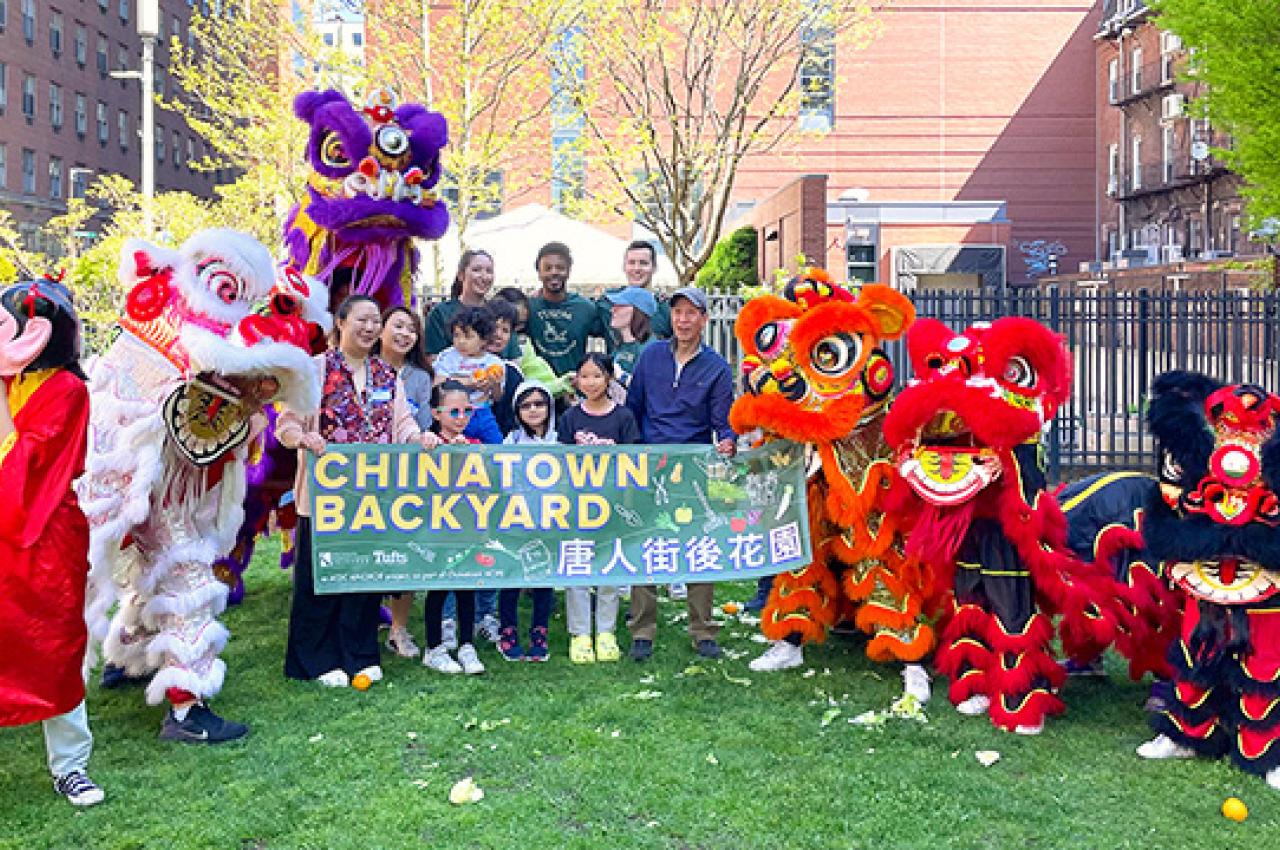Sowing Stories to Reap Environmental Change
Every year since 1985, the nonprofit organization Farm Aid has run a music festival to raise funds and awareness in support of family farmers and a more resilient food system. As part of the festival, the broadcasting corporation Sirius XM live-streams audio from the show—giving farmers a national platform to share their stories.
At last year’s festival, former Farm Aid staffer Alicia Harvie volunteered to ready farmers for media interviews throughout the day. She coordinated the lineup for Sirius XM and coached farmers on how to tell their stories.
Harvie, A06, N09, couldn’t have been more in her element. Since her days as an undergrad, she’s been involved in agricultural and environmental policy, communications, and activism in one form or another. She also worked at Farm Aid for 11 years, first as a program manager and then as director of advocacy and farmer services, so she “knew the work like the back of my hand.”
Through all of her experiences, she says, one lesson stands out: “You have to balance what can feel like the very technical work of policy advocacy with storytelling and immersive experiences.”
Now, as the head of REI Co-Op’s Cooperative Action Network—which encourages people to take action on climate change, inequities in access to the outdoors, and conservation issues—she regularly considers how to help people see the connections between their personal experiences and their power to create change from the bottom up.
The Path to Advocating for Grassroots Change
Harvie’s journey toward environmental work began with a road trip that kicked off at 4 a.m. It was the summer of her sophomore year at Tufts and her first day on a new job, working as an assistant to Kathleen Merrigan, then a professor at the Friedman School of Nutrition Science and Policy. She and Merrigan drove from Medford to several farms in Vermont to collect raw milk samples from dairy farmers.
Their study involved interviewing farmers to gather information about the breeds of cows they raised, the number of times per day the cows were milked, whether the animals were artificially inseminated, and what they were fed.
“That got some wheels turning for me,” Harvie says. “I loved talking to the farmers, loved thinking about why they make the choices they do and how they view their own role in stewarding land and animals. I loved hearing their stories about their connection to the land.”
The experience inspired Harvie to write her undergraduate thesis on the ideology of certified organic farmers—a topic that married her two majors, environmental studies and anthropology.
After graduating, she worked in the domestic program at Oxfam America, helping with the effort to rebuild the Gulf Coast after Hurricanes Katrina and Rita. She loved that work—“I was learning about Indigenous rights, the extractives industry, sustainable agriculture, and economic justice,” she says—but when her former professor, Merrigan, called to tell her a fellowship opportunity had opened up in the Agriculture, Food, and Environment Program at the Friedman School, she knew she had to jump at the chance to pursue it.
Change from the Ground Up
At Friedman, Harvie dove deep into studies of food systems and environmental and agricultural science and policy—and that led her to the job with Farm Aid. She helped run the organization’s grant program, supported the division that provides services to farmers, and steered the group’s policy advocacy work.
It was in that role, working with Willie Nelson and other musicians who spearheaded the Farm Aid campaign, that she began to understand the importance of grassroots movements.
“Willie’s instinct was to pass the mic over to farmers and let them speak for themselves,” she explains. “I picked up that thread and learned to carry it through the way I shaped priorities. It instilled in me a sense of community—the understanding that when we’re advocating, it’s really about people, it’s about a sense that change comes from the ground up.”
Using that understanding to guide policymaking and activism leads to change, she adds.
“I’m sensitive to folks swooping in from big organizations and trying to ‘save’ communities without really listening or recognizing the leadership of folks on the ground,” she says. “With climate change, for example, we need to listen to frontline communities who are facing dramatic losses.”
Those communities are the ones that can best shape solutions, according to Harvie, because they already know what will work and what won’t.
Raising Voices for Effective Advocacy
That philosophy applies not just to climate change activism but also to campaigns for betterment and justice on many fronts, she says. “If people are looking to be engaged citizens, it’s important that they connect the dots between causes. The environmental degradation we can see all around us, the crisis of species extinction, the agricultural battles—these have ties to other issues, like racial inequity, economic consolidation, and corporate power.”
But how can activists help shape policy to make improvements on all fronts? It comes back to storytelling, Harvie says.
She offers as one example a project REI undertook to partner with community-led organizations in raising funds and advocating for policies to improve access to green spaces in underserved neighborhoods. As part of the project, REI produced a five-minute film focusing on the personal stories of individuals whose quality of life improved because of their access to Washington, D.C.’s Anacostia Park.
“Anytime we showed that film,” Harvie says, “people would be in tears.” The film features, for example, a man who had spent much of his life in the prison system, and who felt alone in and bombarded by the city around him—until he was given a job in Anacostia Park. “When you hear about the respite and renewal he found just in going to Anacostia Park,” she adds, “when you hear the stories of people who have found healing through nature and who—because of their experiences—want to become advocates for green spaces, that starts a ripple effect to help others understand the issues and prompt them to want to make change.”
Latest Tufts Now
- I Never Wanted a Dog—Certainly Not One that Bit PeopleSomehow, I found myself spending an hour a day in the woods with a rescue animal that had attacked my sons. Would this end well?
- Tufts Awards 35 Grants to Support Local InitiativesNine organizations receiving funding this year are first-time Tufts Community Grant recipients
- Learning and Guiding through Listening: Linell YugawaThe former director reflects on her 30-plus years at the Tufts Asian American Center
- What’s Behind the Potential Ban on TikTok?An expert on attention says the video app has some advantages over other social media that keep it addictive, but that the real fear seems geopolitical
- A History of the First Asians in the Americas Became PersonalHistorian Diego Javier Luis plumbed the far corners of archives to unearth the stories of Filipinos and others who came to colonial Mexico starting in the 1500s
- Arielle Galinsky’s Treasury of Life StoriesSince high school, she has been helping senior citizens pass down their personal histories. Many other college students have joined the cause.













